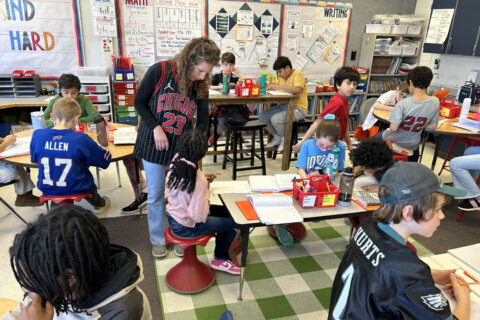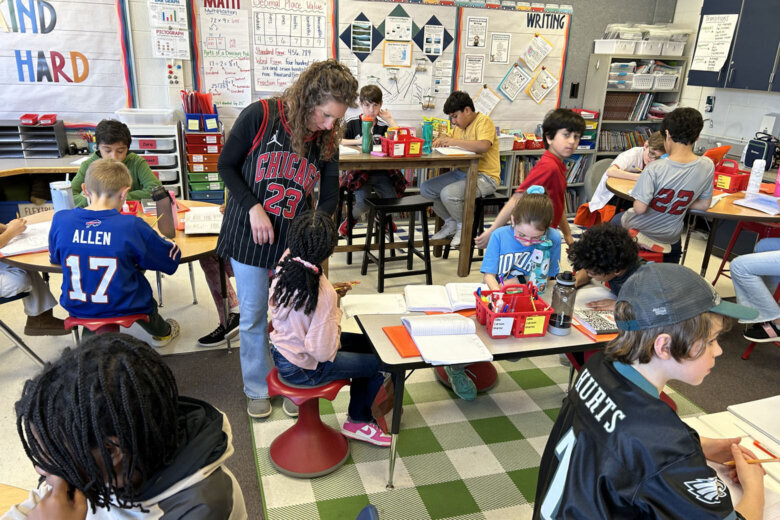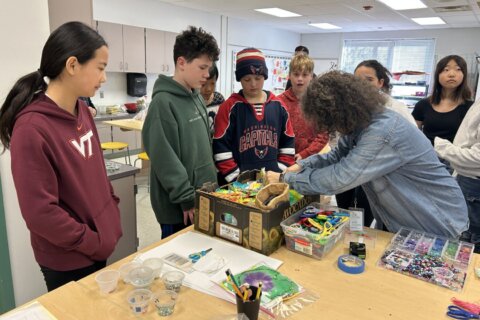
When she first started teaching, Nicole Johnson would scan her class roster and say something positive about every student.
If she got to a student and couldn’t come up with something quickly, Johnson took it as a sign that she needed to step back and get to know the student better, “Just with an understanding that every kid has something positive about them,” she said.
That approach has proven valuable now that Hayfield Elementary School in Fairfax County, Virginia, has tasked teachers with making sure students feel a sense of belonging in their classrooms.
The challenge came after reviewing student results from the Social and Emotional Learning Screener, given to third through sixth graders twice per year. Teachers were searching for students who indicated they didn’t feel strongly that they were part of the school community.
Some of the students who scored lower on the screener, Johnson said, “are kids that are just complacent, they kind of fly under the radar.”
Johnson is fostering a sense of belonging by speaking to students for two minutes every day, for 10 straight days, about anything except for academics or behavior. She chooses a few students and has the talks one at a time, she said.
If she misses a day, she starts the 10-day count over.
“Just understanding that belonging is such a basic need, and making sure that if our students are feeling like they belong, they’re in a better place to be able to learn and receive information,” Johnson said.
There’s “nothing magical about the two minutes or the 10 days in a row, it just helps us to be consistent and to be intentional about it.”
Johnson has the conversations with students in the morning, during the walk to recess or while students are working on their writing. Regular topics, Johnson said, include sports, pets, siblings or family vacations.
“We’re seeing with students that when we invest in them like that, and we spend that time, they are just showing a greater confidence, and just a more willingness to participate and feel like part of the class,” Johnson said.
The approach was particularly effective with Nina Long.
Long attended Hayfield for kindergarten, but transitioned to an elementary school in Maryland the last three years. Now, she’s back at Hayfield, and it took her a bit of time to get comfortable again.
Johnson viewed that as an opportunity to connect with her using the short chats.
“It took me some time to know all the people here, all the teachers and their names,” Long said. But now, she describes the classroom as “really welcoming.”
Some of her classmates agree.
“Everyone’s just energetic,” Evie Giacobbi said. “It feels like everyone wants to be here every day.”
In addition to making students feel like they belong in the classroom, Principal Jessica Lewis said students are starting to attend school more regularly. Last year, the school had a 14% chronic absenteeism rate, she said. So far this year, it’s 6%.
Students who miss 10% or more of school days in an academic year are considered chronically absent.
“This is about people’s basic needs,” Lewis said. “People need to feel connected. They want to feel heard and seen.”
Kristin Turner, a social and emotional learning specialist in the school district, said as part of the county’s efforts to build school culture, elementary schools have to do a morning meeting. Middle and high schoolers, meanwhile, have responsive advisory meetings, where “the focus is building relationships, which is particularly something that we’re working on at the secondary level. As kids get older, how do we still make sure that they’re connecting with each other?” Turner said.
In Johnson’s classroom, that connection is built in just two minutes.
“As humans, we all need to feel like we belong and that we all want to be needed,” Johnson said. “And it’s no different for our kids in here.”
Get breaking news and daily headlines delivered to your email inbox by signing up here.
© 2024 WTOP. All Rights Reserved. This website is not intended for users located within the European Economic Area.









